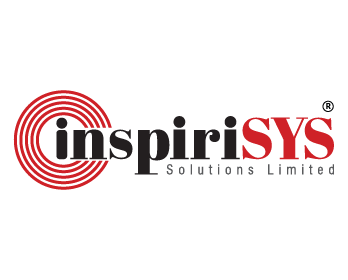What is a Cloud Service Provider (CSP)?
A Cloud Service Provider (CSP) is a company that offers computing services, including servers, storage, databases, networking, software, and analytics over the internet, commonly referred to as “the cloud.” CSPs enable businesses and individuals to access IT resources on-demand, eliminating the need to own or manage physical infrastructure. These services are typically offered on a pay-as-you-go basis, allowing organizations to scale their usage according to operational needs.
Key Takeaways
- Cloud Service Providers (CSPs) drive digital transformation by delivering scalable, on-demand computing resources such as storage, processing power, and software tools.
- Service models include IaaS, PaaS, and SaaS, addressing different technical and business requirements.
- Security, compliance, and high availability are core CSP features, but organizations remain responsible for data protection, identity management, and correct service configuration.
Why Are Cloud Service Providers Important?
CSPs have become foundational to modern digital transformation. They provide the flexibility, reliability, and scalability required by today’s enterprises to stay competitive. They also enable remote work, support big data analytics, facilitate DevOps pipelines, and empower the adoption of emerging technologies like AI and IoT. By offloading infrastructure concerns to CSPs, organizations can focus more on innovation and less on maintenance.
Types of Cloud Service Models
Cloud services are typically delivered in three models such as Infrastructure, Platform, and Software—each offering different levels of control, flexibility, and management.
Infrastructure as a Service (IaaS)
IaaS is provides foundational IT resources, like virtual machines (VMs), storage, and networks over the internet. Instead of buying physical servers or hardware, businesses can rent these resources from a provider and manage them online. It is ideal for organizations needing high control over their infrastructure.
Platform as a Service (PaaS)
PaaS provides a development and deployment environment in the cloud, complete with tools, libraries, and infrastructure to build applications. Developers can focus solely on coding without worrying about the underlying hardware or operating system. PaaS is commonly used for web and mobile app development.
Software as a Service (SaaS)
SaaS is a cloud service model that provides ready-to-use software applications through a web browser. The provider handles hosting, updates, and maintenance, while users access the software on a subscription basis.
Core Features and Capabilities of CSPs
CSPs are defined by core capabilities that enable organizations to use cloud services effectively and efficiently.
- Scalability and Elasticity
Scalability allows systems to grow with demand, while elasticity enables automatic resource allocation or reduction based on workload. CSPs support horizontal and vertical scaling to balance performance and cost, ensuring applications remain responsive during traffic spikes or usage drops.
- Multi-Tenancy and Virtualization
Multi-tenancy allows multiple customers share the same physical infrastructure while keeping their data and resources secure. Virtualization facilitates this feature by abstracting hardware into multiple virtual machines within a single server. These mechanisms form the backbone of efficient and isolated cloud environments.
- Data Redundancy and High Availability
Data redundancy is achieved by storing multiple copies of information across different physical locations, protecting it from hardware failures or disasters. High Availability (HA) architectures further maintain continuity by using failover systems, load balancing, and geographic distribution to minimize downtime and keep mission-critical applications accessible.
- Security and Compliance Standards
Global security standards such as ISO/IEC 27001, SOC 2, and GDPR guide the operations of cloud service providers. Built-in safeguards such as encryption, identity and access management, firewalls, and DDoS mitigation strengthen protection. In addition, compliance with regulations like HIPAA and PCI DSS helps organizations meet both legal and operational requirements.
Popular Cloud Service Providers
Several leading providers dominate the cloud market, each offering distinct strengths and services to meet diverse business needs.
- Amazon Web Services (AWS)
AWS is the leading Cloud Service Provider, offering over 200 fully featured services across computing, storage, databases, machine learning, and more. Known for its vast global infrastructure and innovation pace, AWS supports start-ups to large enterprises in nearly every industry.
- Microsoft Azure
Azure provides a wide range of cloud solutions deeply integrated with Microsoft products like Windows Server, Active Directory, and Office 365. Azure excels in hybrid cloud, enterprise support, and developer tools, making it popular among organizations that rely extensively on Microsoft technologies.
- Google Cloud Platform (GCP)
GCP specializes in data analytics, machine learning, and open-source technologies. With services like BigQuery and Vertex AI, GCP is favored by businesses focusing on data-driven insights, high-performance computing, and container orchestration with Kubernetes.
- Other Noteworthy CSPs
- IBM Cloud provides flexible computing resources optimized for AI, enabling enterprises to efficiently manage fluctuating demands and high-performance workloads.
- Oracle Cloud offers database-optimized cloud services with strong enterprise resource planning (ERP) tools.
- Alibaba Cloud is a dominant player in Asia, offering scalable and cost-effective cloud services for global enterprises expanding in the region.
How to Choose the Right CSP?
When selecting a cloud service provider, organizations should evaluate several factors, including workload requirements, pricing models, global data center availability, compliance with regulatory standards, integration with existing systems, and the quality of customer support. The right choice ultimately depends on how effectively the provider’s offerings align with the organization’s operational goals and security needs.
Common CSP Tools and Services
Cloud service providers deliver a wide set of tools that extend beyond core infrastructure:
- Storage and Databases: AWS S3, Azure Blob Storage, GCP Cloud Storage, Azure SQL Database, Amazon DynamoDB, Firestore
- Networking and Content Delivery: Amazon CloudFront, Azure CDN, Virtual Networks, Firewalls, VPNs, DNS Services
- AI and Machine Learning: AWS SageMaker, Azure Machine Learning, Google Vertex AI, AI APIs (speech, vision, NLP)
- DevOps and CI/CD: Azure DevOps, AWS CodePipeline, Google Cloud Build
Key Terms
Cloud Migration
The process of moving data, applications, or other business elements from on-premises infrastructure to a cloud computing environment.
Virtual Machine (VM)
A software-based emulation of a physical computer that runs an operating system and applications just like a physical server but is hosted in the cloud.
API (Application Programming Interface)
A set of rules that allows different software applications to communicate and interact with cloud services or other applications.

